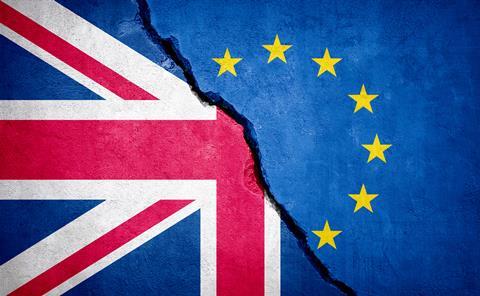Association urges caution over the impact on EU-UK trade of Defra’s proposed risk reclassification and inspection rates for EU fresh produce imports

Freshfel Europe has submitted its response to the consultation launched by Defra in the UK on the proposed changes to Annex 11 of the retained Implementing Regulation 2019/2072.
The fresh produce association warned that adopting the changes would ”impose checks and other unnecessary controls” on half of all EU fresh fruit and vegetable exports to the UK.
The proposed changes would reclassify half of all EU exports to the UK as medium- or high-risk, it noted.
”Under Defra’s proposed changes, exports like tomatoes, peppers, apples, pears, grapes, or strawberries, all in all totalling 1m tonnes of exports in 2022, would be recategorised as medium-risk and subjected to heightened controls and additional red tape,” Freshfel outlined.
”Similarly, an additional 250,000 tonnes of lower risk control including lettuces, plums, and other stonefruit would also be subjected to new red tape.”
In its response to Defra, Freshfel raised concerns that the proposed changes could ”significantly jeopardise” the competitiveness of EU exports of fresh fruit and vegetables.
This could mean costs increasing by up to £200m (€235m) due to the direct and indirect costs relating to administrative burden, logistics rerouting to border control posts, documentary and physical checks costs, potential delays upon arrival due to inspection wait times and various collateral aspects.
These additional costs would potentially render the UK market less attractive for EU exporters, Freshfel said, endangering food security, fluidity of supply and affordability of fresh produce in the UK, particularly the freshness of fruits and vegetables, which are often shipped with just in time delivery in less than 24 hours.
This was ”crucial” for the UK, as it sourced 38 per cent of its vegetables and 34 per cent of its fruit from the EU.
Ultimately it would lead to higher food prices, reducing consumers’ ability to access affordable healthy food, Freshfel warned.
“A dangerous by-product of the proposed changes is that food waste is likely to increase, whether because of delays before departure or upon arrival in GB, or a combination of both,” said Freshfel’s trade policy advisor David Fernández.
Freshfel stated that the proposed changes were ”unnecessary” and an “unjustifiable obstacle to trade”, highlighting that over the last half-century of EU membership – and still since Brexit – there had been no noteworthy biosecurity or other food safety incidents or interceptions in EU-UK fresh produce trade.
“The proposed changes challenge the stability of current solid business relations between EU suppliers and their British business partners,” said Freshfel’s general delegate Philippe Binard. “Previous examples of shortages in British supermarket shelves have already made clear the fragility of supply chains.”
Freshfel called on UK authorities to rethink their approach and recommended finding an agreement with the EU on SPS matters to ”ensure seamless trade”.
It added that Defra ”should ensure transparent, clear, and flexible rules with the least possible impact on trade in light of the long history of non-problematic fresh produce trade between the EU and the UK, and to prevent a repetition of past instances of empty supermarket shelves in Great Britain, as witnessed already in early 2023”.



